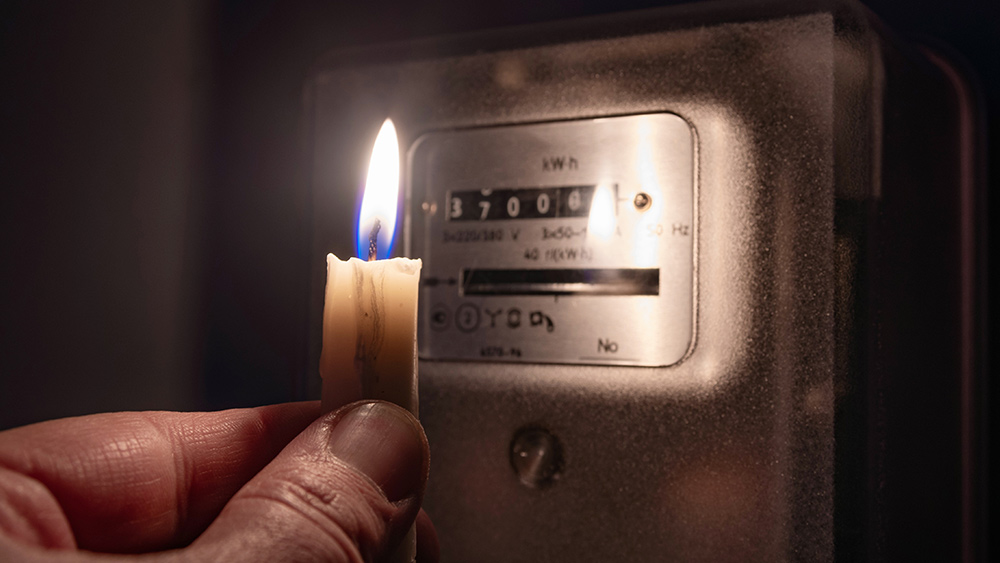Mercedes-Benz EV catches FIRE in underground parking lot in South Korea, sparking safety concerns
08/13/2024 / By Ava Grace

An incident involving a Mercedes-Benz electric vehicle (EV) that ignited while at an underground parking in South Korea has sparked debates over the electric cars’ safety.
According to the Wall Street Journal (WSJ), a Mercedes-Benz EQE sedan spontaneously combusted while parked at the underground parking of an apartment complex in South Korean’s Incheon city. It only took mere seconds for the resulting conflagration to consume nearby cars and scorch an additional 100 vehicles.
The blaze also cut off the power to the apartment complex and forced hundreds of apartment residents to emergency shelters. While nobody died, it took firefighters eight hours to extinguish the conflagration.
But this was not the first EV-related fire that struck South Korea. Days before the Mercedes-Benz EV incident, a Kia EV6 caught fire in a parking lot in a central town in the country. In June, a lithium battery factory fire killed almost two dozen people.
From only two official EV fires reported in 2018 in South Korea, this number soared to 72 in 2023. This increase coincided with the rise of registered EVs in South Korea, which also skyrocketed by almost 10 times from around 55,000 to 543,900 during the same period. (Related: EVs are killing the automobile industry: Mercedes, Porsche, Tesla and Ford all seeing profits “free fall.”)
The rechargeable lithium-ion (Li-ion) batteries used in EVs are widely used in smartphones. Overheating batteries are often the cause of EV fires.
“The perceived risk of EVs is particularly acute in tightly packed South Korea, [with a population of] roughly 52 million people,” the WSJ pointed out. “Seoul, the capital city, has a significantly higher population density than New York or Tokyo. Around half of South Koreans live in the greater Seoul metropolitan area.”
EV fires a growing concern inside and outside South Korea
The June EV battery fire, which killed at least 23, was one of the nation’s worst industrial accidents in recent memory. Some 35,000 battery cells were thought to have been stored on-site. These cells eventually reacted with the blaze, producing occasional flashes and thunderous booms based on footage that circulated on social media.
According to University of Seoul fire-engineering protection professor Sunnie Haam, the overheating of Li-ion batteries remains a problem that even water, in some cases, could even produce explosive chemical reactions. This is because lithium metals react violently to moisture.
She suggested coolants such as liquid nitrogen instead of water for EV fires. But the professor acknowledged that using liquid nitrogen is very expensive for every fire station to purchase in big volumes.
Meanwhile, Inha University chemical engineering professor Tak Yong-sug noted that lithium is widely viewed as a key future energy source, given its outstanding ability to retain high amounts of energy compared with other metals. “Lithium is a coveted resource, and countries worldwide are making efforts to ensure access to lithium supply,” he said. However, Tak warned that the properties of the metal that make it suitable for energy storage also pose risks.
Given the incident, a South Korean lawmaker proposed requiring specialized fire extinguishers and equipment to be installed in areas at risk of EV battery fires. Some apartment complexes are proposing measures, such as demanding EV owners sign a pledge to shoulder responsibility for any accidents.
Film director Ha Won-jun proposed to his apartment’s residents group that the complex’s EV charging stations be relocated above ground. “Now I anticipate this to be pushed forward quickly,” said the director, whose apartment is based in the South Korean city of Namyangju.
Visit RoboCars.news for similar stories.
Watch this video from “Mornings with Maria” on Fox News about former President Donald Trump calling for the end of EV efforts in the country.
This video is from the NewClips channel on Brighteon.com.
More related stories:
The energy transition ain’t happening: “Green” economy in retreat.
Tesla recalls more than 1.8 MILLION units over car software’s inability to detect an unlatched hood.
MONEY DRAIN: Ford lost $2.5B on its EV segment in the first half of 2024.
New car incentives surge by 53% amid growing car inventories and decreasing demand.
The nationwide 500,000 EV charger charade.
Sources include:
Submit a correction >>
Tagged Under:
apartment complex, battery fires, climate change, dangerous, disaster, electric cars, electric vehicles, EV battery, EV fires, green deal, Green New Deal, green tyranny, lithium ion batteries, Mercedes-Benz, products, risk, South Korea, spontaneous combustion, underground parking
This article may contain statements that reflect the opinion of the author
RECENT NEWS & ARTICLES
COPYRIGHT © 2017 POWER NEWS


















